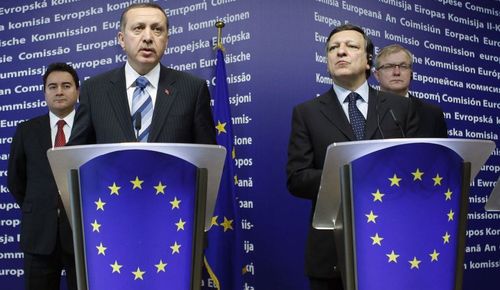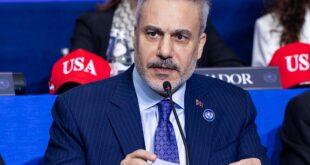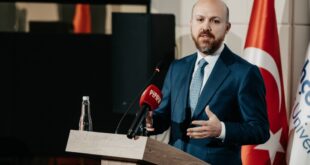 International Press Institute (IPI) director David Dadge met European Enlargement Commissioner Olli Rehn and other EC officials on March 9 2009 to call on the EC to make press freedom a priority in EU membership talks with Turkey.
International Press Institute (IPI) director David Dadge met European Enlargement Commissioner Olli Rehn and other EC officials on March 9 2009 to call on the EC to make press freedom a priority in EU membership talks with Turkey.
In a media statement, the IPI said that the appeal was made “amid concern over verbal attacks on news organisations and continued legal hurdles to free expression in the country”.
The meetings followed concerns expressed by IPI and other organisations about Turkish prime minister Recep Tayyip Erdogan’s public complaints about coverage of his government, and his appeals to supporters to stop buying newspapers that, as he told one rally, “stand by others rather than stand by the prime minister of the Turkish Republic”.
“IPI hopes the European Commission can use its influence to encourage prime minister Erdogan to take a step back from his position of criticising the media and calling for boycotts,” Dadge said after the meetings.
“The EU can play a central role in ensuring free expression and pluralistic media in candidate countries such as Turkey”.
Dadge also expressed concern about Turkish laws used to prosecute journalists, including Article 301, which bans insults to the Turkish state.
Although amended in 2008 to reduce the jail time from three years to one, Dadge said the law “risks inciting attacks on journalists by questioning their loyalty”.
It has been used in the past to punish journalists and intellectuals who criticized government policies, including murdered newspaper editor Hrant Dink.
“Article 301 remains a threat to free expression in Turkey,” Dadge said.
The EC’s 2008 progress report on Turkey cites Article 301, anti-terror statutes and other laws as potential infringements on free expression.
The most recent US state department report on human rights in Turkey also notes that such laws could restrict press freedom.
Dadge met with staff from the offices of European Commissioner for Information Society and Media Viviane Reding and External Relations Commissioner Benita
Ferrero-Waldner.
Other issues raised during the meetings in Brussels include the unprecedented 380 million euro fine for tax evasion imposed in February on the Dogan Media Group, Turkey’s largest media company and a frequent critic of the Erdogan government.
Turkish authorities insist that the fine had nothing to do with Erdogan’s running feud over the company’s news coverage, but Dadge expressed concern about the timing of the fine (which came after months of criticism from the prime minister), and the potential crippling financial impact on the company.
Further issues discussed included the vital role that pluralistic and diverse media could play in assuring skeptical EU countries that Turkey qualifies for EU membership, that strong media in Turkey provide not only valuable information to a geographically large country, but a release valve for diverse opinions in a country with longstanding ethnic problems and a religious-secular divide.
IPI’s affiliate, the South East Europe Media Organisation, also urged EU representatives to ensure freedom of expression a leading condition for potential members of the bloc.
 Eurasia Press & News
Eurasia Press & News



